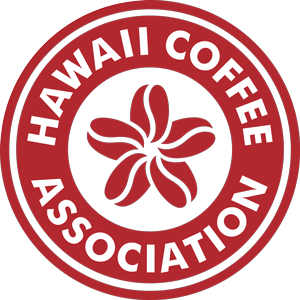Original Source of the Article
Banks and Farm Credit System institutions on Friday began taking applications from farmers and other small businesses for $349 billion in forgivable loans aimed at shoring up the economy during the COVID-19 crisis.
The Small Business Administration released an interim final rule late Thursday to update and clarify requirements announced earlier in the week for the Paycheck Protection Program. The loans will essentially be grants as long as 75% of the loan proceeds are used to cover payroll costs.
After some initial confusion, farm and banking groups and accounting experts agreed that farms were eligible for the program.
RJ Karney of the American Farm Bureau Federation said Friday that after reviewing the interim final rule it appeared clear that farms with fewer than 500 employees would qualify for the program despite SBA's traditional revenue thresholds that would exclude many producers.
Farm leaders, banking industry officials and accounting experts said there had been considerable confusion in the countryside about whether farms are eligible for the Paycheck Protection Program. Some SBA field offices themselves have been erroneously telling farmers they won't be eligible for PPP assistance, Agri-Pulse was told.
Todd Van Hoose, president and CEO of the Farm Credit Council, said the program will be especially valuable to farm operations with year-round employment, including livestock producers and fruit and vegetable growers since the loans can’t be forgiven unless most of it is used for payroll costs during the crisis.
“Our phones have been ringing off the hook” since the program was announced earlier in the week, Van Hoose said. “Demand is going to be very high, and we’re eager to help.”
SBA made all member institutions of the Farm Credit System eligible to make the loans, he said.
The Independent Community Bankers Association had raised some concerns with the program, including the very low interest rate, 0.5%, that SBA initially said would be charged to borrowers if they are not eligible to have the loan forgiven. The interim final rule released Thursday raised the rate to 1%.
ICBA had said in a letter to SBA and the Treasury Department that the 0.5% rate "would create unacceptable losses for lenders, which have a duty to preserve their good health for the sake of their communities,”
Brian Kuehl, director of federal affairs for the accounting firm KCoe Isom, also expected there to be broad interest in the program. “You can throw a rock and you’ll hit someone who’s having a hard time in agriculture right now,” Kuehl said.
SBA officials have not responded to Agri-Pulse’s questions about the program.
Under the program, businesses with fewer than 500 employees may qualify for a loan up to $10 million, based on their eight weeks of prior average payroll, plus an additional 25% of that amount. To calculate the loan amount, multiply the average monthly payroll for the past year by 2.25, experts say.
The loan will be fully forgiven if the funds are used for payroll costs, interest on mortgages, rent, and utilities and at least 75% of the loan is used for payroll.
But the value of the program will be limited for some farms because foreign workers, including H-2A visa holders, and independent contractors won’t be eligible for the program. Also, farms who hire most of their workers at harvest would have little payroll costs to apply toward the loan forgiveness.
The American Farm Bureau Federation was originally concerned that many farms would be excluded from the program, but Paul Neiffer, an agricultural accounting specialist with CliftonLarsonAllen, said that based on the interim final rule the PPP loans are exempt from revenue thresholds that apply to other forms of SBA assistance.
"I think the law is pretty clear that revenue does not matter," he said in an email to Agri-Pulse. "It states that borrowers can be small business concerns (which have a revenue component) plus any business concern with less than 500 employees or less than the limit allowed by SBA and it is the greater of these two numbers." Since any businesses with fewer than 500 employees are made eligible the "revenue limits go out the window," he said.
Much of the confusion around farm eligibility for the program apparently stems from the creation of a second, more conventional loan program, called Economic Injury Disaster Loans, for which farms are not currently eligible.
A coalition of farm groups and a bipartisan group of more than 80 House members from agricultural districts are lobbying SBA to make the 3% EIDL loans available to farms. As of Thursday afternoon, the agency had not rendered a decision.
In a letter to SBA on Thursday, the lawmakers said they “were shocked and disappointed that, contrary to Congressional intent, the Small Business Administration singles out farmers and agricultural businesses as ineligible for this program.
The lawmakers demanded SBA provide the legal rationale for excluding farms from the program. Farms have been excluded from earlier versions of the program, but the stimulus bill intended to make the new EIDL loans available to farms, the lawmakers and farm groups say.
Updated with the interim final rule for the PPP loans.
Philip Brasher
Executive Editor
More news from www.Agri-Pulse.com.
